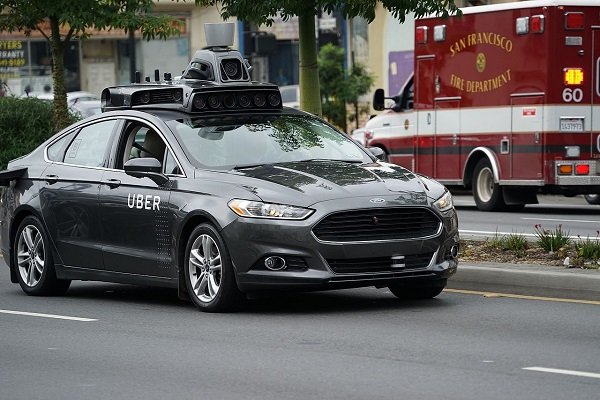Media outlets reported that Uber drivers have been using a security app feature to scam passengers. The new tactic to trick passengers is being called the “security code scam”. Cases have been reported in different Brazilian states. The scam subverts one of a series of security mechanisms created by the transportation apps. Victims can complain to the company, which is responsible in these cases.
How Does it Work?
The U-Code is a four-digit password created by the app for each trip that can be activated by the passenger as a verification code to start the trip. The idea is that the code is a means of verification for both the passenger and the driver that they are on the right trip. Other companies, such as ifood, have similar features to guarantee that the meal is being delivered to the right person. Clients are required to provide the last four digits of their cell phone number upon receiving the meal.
In Uber’s case, the feature is optional, and must be enabled. If the user chooses to do that, the code has to be verbally provided by the user to the driver when entering the vehicle. It is at this point that scammers begin acting. Before arriving at the boarding point, they use the app’s chat to ask the user for the race’s security code. If the passenger provides the number, the system understands that the passenger entered the vehicle, and the race starts. Thus, drivers can trigger longer trips for high prices, while the passenger never entered the vehicle.
Cases have been reported in several Brazilian states, but mainly in the Southeast, in São Paulo and Rio de Janeiro, but not only in the capitals. In Rio, cases reported took place in Rio de Janeiro city and Campos dos Goytacazes. While in São Paulo state, there were incidents in the capital and in a few cities of the Metropolitan area, like São Bernardo do Campo.
What to Do After Being Scammed?
In case the driver asks for the code before arriving at the boarding point, victims must capture the cell phone screen with the chat image. Then, it is important to cancel the race, contact the company and inform it about what happened and demand that a cancellation fee is not charged.
If the scam is complete, the company can be held responsible, since it was through its application and service that the damage to the consumer occurred. The company must take all measures necessary for this type of fraud not to occur.
First, contact the company and ask for a refund. This contact can be made through the company’s SAC or through the website Consumidor.gov.br, from the National Consumer Secretariat (Senacon). Another way is to talk to the consumer protection institution of the state where the person was scammed (Procon).
Features offered by the Uber and 99 platforms:
Even though the transportation app companies have been investing in security measures, criminals continue to attempt to circumvent the measures. Passengers must understand the security features and know how to use them.
The 99 app does not have the security code, but it provides the “Block” function to avoid encounters with the same driver in future races. Uber does not have the function.
Driver rating driver ratings help maintain service quality; thus, users must evaluate the rides and report problems, so the company is aware of any issues.
To await the arrival of the car, the passenger must seek a safe location that was stipulated when requesting the service.
Before beginning a trip, users must check that the car model, color and license plate match the same data that appears in the application. In addition, before getting into the car, ask the driver for his name and ask him to confirm the passenger’s name. In case of disagreement, both must cancel the trip and notify the apps. Finally, activate the option to share your journey in real time with trusted people.
During the trip, it is possible to record the audio of the trip, which, if necessary, can be shared with authorities. The files remain on the devices of those who performed the recording and can be opened by companies, as well as law enforcement authorities.
Our Analysis:
The virtualization of services is a global trend. It is reasonable to expect that, not only in Brazil, but in most countries, the number of crimes exploiting opportunities given by the aforementioned phenomenon will grow. Therefore, like in any other system/environment, users must learn how to properly protect themselves. This process begins by learning how the system works and how to use its security features.
Source: Folha de SP; G1.




